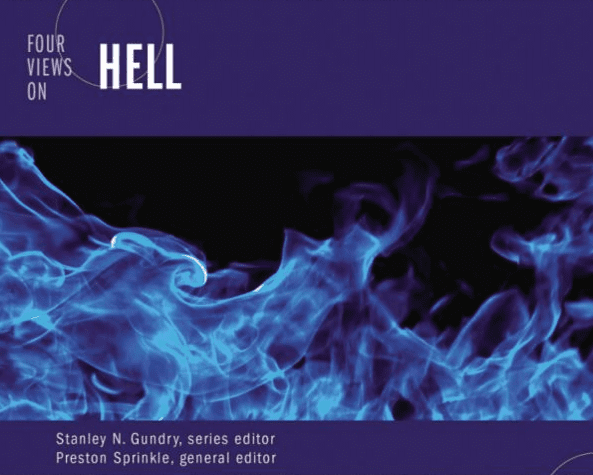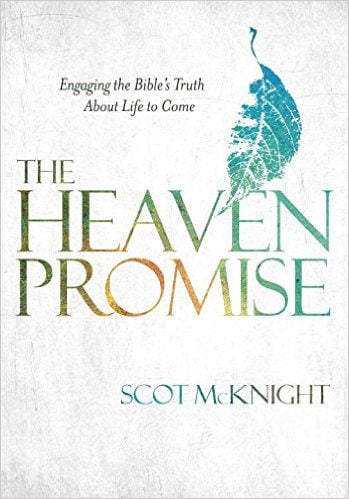 Jeff Cook teaches philosophy at the University of Northern Colorado. He is the author of Everything New: Reimagining Heaven and Hell(Subversive 2012), and a pastor of Atlas Church in Greeley, Colorado. You can connect with him at everythingnew.org and @jeffvcook.
Jeff Cook teaches philosophy at the University of Northern Colorado. He is the author of Everything New: Reimagining Heaven and Hell(Subversive 2012), and a pastor of Atlas Church in Greeley, Colorado. You can connect with him at everythingnew.org and @jeffvcook.
One thing I admire about Jeff Cook is his willingness to put his thinking on the line for others to debate, to affirm, and to question. That’s a sign of a mature thinker. Jeff and I don’t always agree but he’s a great conversation partner, and I think most of us would give him a big Bravo for his posts.
Repainting Hell: Justice
A number of theologians and scholars over the past century have questioned whether the church has understood hell correctly. The most widely held view has interpreted “hell” as “eternal conscious torment,” but this view is not as easy to justify through the scriptures or through reason as we might think given its prominence. Over the past month I have set out to present five philosophical ways of knowing hell is not eternal conscious torment.
Linked are the first four arguments from (1) Personal Identity, (2) The End of Evil, (3) The Desires of God, and (4) The Argument from Location. Benjamin Corey has picked up this conversation here and here, as well.
(Interesting to me, few if any traditionalist have taken time to respond to these claims, but we have had countless universalists jumping in to suggest that annihilationism only appears to do a better job than traditionalism. They’ve argued that annihilation is susceptible to the same problems as eternal conscious torment. Perhaps we will need to do another series on that in the future … )
Way Five: The Nature of Justice
A primary argument for eternal conscious torment is that it advances justice. As a sample of the many thinkers advocating this line of thought, I will highlight Randy Alcorn, who wrote, “When I think of Hell, I recall a man I met on a train out of Kiev, whose mother was the only one of twelve children in her family to survive Stalin’s enforced starvation in Ukraine. I think about Vek and Samoeun Taing, as they walked us through the Killing Fields, telling us of the atrocities committed against their families. Without Hell, justice would never overtake the unrepentant tyrants responsible for murdering millions. Perpetrators of evil throughout the ages would get away with murder—and rape, and torture, and every evil.”
Alcorn goes on in the same post to reject the annihilationist view because “annihilation would not satisfy God’s justice … If it were true, annihilation might itself raise a serious moral problem, for it suggests that our sins are not so grievous and the consequences for committing them are painless, or at worst exist only for a limited time.”
So, What is Justice?
In the New Testament, the word for justice and righteousness are the same (dikaiosuné). When speaking of the creation, justice is the state of being “right”. The image is one of reality being set correctly in line with God’s teleological purposes. Justice is a description of creation as it ought to be.
Now, to say eternal conscious torment advances justice means this punishment some how brings about the teleological purposes of the Creator. Hell then is a tool for repairing the damage done to God’s creation and putting reality right.
The question then is: Does the interpretation of hell as eternal conscious torment bring about creation as it ought to be? Does the creation of an indefinite state of torment solve the problems of sin, death and rebellion at work in God’s world?
Let’s get technical for a moment.
Punishment are a common tool for creating justice. A punishment may be initiated for: Retribution (the punishment is imposed to satisfy an offended party), for Deterrence (punishment inflicted to deter both the punished and the rest of society from acting in a certain way), forRehabilitation (punishment is meant to reform the offender’s behavior), for Incapacitation (offender is separated from the rest of society to prevent further damage), for Reparation (repayments are made to the victims), or for Denunciation (a public rebuke is voiced to reinforce moral standards).
The most common argument for eternal conscious torment are, like Alcorn’s, retributive (though Josh Ryan Butler and others have argued for hell as incapacitation, and many argue for value in the threat of eternal conscious torment as a deterrence).
So is eternal conscious torment a “just” retributive punishment? Let’s look at three failed attempts by popular scholars.
(1) Retribution and Math
Dante envisioned hell as a set of circles each becoming more graphic the worse one’s sins in life. Some of the damned would suffer slightly, where the true tyrants–as acorn argued–would suffer more. Interestingly enough, this view does not stand mathematically.
Math gets real interesting when you bring in infinite quantities. For example:
Infinity multiplied by infinity equals infinity: ∞ x ∞ = ∞
But notice, infinity multiplied by one also equals infinity: ∞ x 1 = ∞
In fact, an infinite amount multiplied by any positive whole number will be infinite, and this has huge implications for Eternal Conscious Torment.
The problem for the argument made by Alcorn and Dante is that given eternity, everyone will suffer an equal, infinite amount. No matter what one’s sins or the imposed level of torment, the slothful and genocidal will all enjoy an equivalent amount of torment.
As such, the Killing Fields and Russian Gulag illustrations Alcorn pressed actually showcase how unjust an infinite hell is, for those who sins were not stained with blood (let’s say the tabloid gossip) shall suffer the same amount as the genocidal butcher. If eternal conscious torment is aiming at retributive justice it fails to dish out the punishment in fair amounts: everyone thrown into the traditional hell would suffer the maximum punishment no matter what sin they committed.
(2) Damage to God
Now a thinker like John Piper offers a way out. He thinks those going to hell all commit the same sin. He writes, “If infinitely valuable glory has been spurned and the offer of eternal joy in God has been finally rejected, an indignity against God has been committed so despicable as to merit eternal suffering.”
A few thoughts:
First, this means that those going to hell are not being punished for any heinous act they have done in life, but only for the sin of “rejecting God”. This does not seem to square with the many passages in the scripture that imply hell is the punishment for specific kinds of sins (ex. Matthew 5:22).
But secondly, given God’s power and goodness, I would contend it is impossible to actually hurt God. Being omnipotent and omni-benevolent, God cannot be harmed. As Socrates argued no evil can affect a good person, and an all-powerful being can only be injured if that all-powerful being allows such damage. In this light, CS Lewis observed, all the trash we throw at Christ either slides off him or turns to glory.
Here’s hook: by condemning souls to eternal torment, Piper’s God would be punishing souls for actions that had absolutely no effect on him.
Now, has “the offer of eternal joy” been rejected? Yes. Does it “merit eternal suffering”? This is hardly clear. Pausing, let us ask what would be the just punishment for rejecting the only life available? If one chooses not to embrace “life” would not the proper response be to grant their wishes as the annihilationist argue?
(3) Infinite Consequences
William Lane Craig argues something similar to Piper. “The refusal to accept Christ and his sacrifice” said Craig, “seems to be a sin of a different order altogether. For this sin decisively separates one from God and His salvation. To reject Christ is to reject God Himself. And this is a sin of infinite gravity and proportion and therefore deserves infinite punishment. We ought not, therefore, to think of hell primarily as punishment for the array of sins of finite consequence which we have committed, but as the just due for a sin of infinite consequence, namely the rejection of God Himself.”
Again, Craig is suggesting immoral actions are not the target of retributive punishment (as many biblical text argue), but that it is the singlesin of “rejecting God himself” that holds an “infinite gravity.”
Notice again, we have the mathematical concept of an “Infinite” value to consider here. I would suggest that Craig is giving power to human beings which God alone possesses. Consider: How can a finite creature move the levers to produce an effect of “infinite gravity”? That sounds like heavy lifting. How would one establish such power in a human person?
More importantly, only an omnipotent being could commit acts of “infinite consequence.” Because God alone is omnipotent—and could conceivably erase any consequences of human actions—this argument fails. Unless one is all-powerful, one cannot perform an act that has infinite gravity and proportion.
Ending with Justice
There are countless other phrasings of the justice argument for eternal conscious torment worthy of consideration and I would welcome those lines of thought in the comment section, but to close I would return to God’s target in his actions: his desire for justice.
The Father, through Christ and the work of the Holy Spirit, aims at reclaiming his world from the power of sin and death that his children might dwell with him in the age to come. Any theory of hell must make sense in the light of the New Creation.
Because Jesus will “renew”, “restore,” “reconcile,” “unite all things in heaven and on earth,” because he will “liberate creation from its bondage to decay,” because Christ is the “heir of all things” who is making “all things new” and because the “Father has placed everything in his hands”, we anticipate Jesus Christ enacting now the palingenesia—the second genesis—the new creation, right in the middle of this one.
Hell as traditionally conceived simply does not fit into this picture, and as such it has no place in our theories about the future plans of the resurrected Son of God.
As I have argued over the past month, eternal conscious torment cannot make sense of a human soul’s existence over time, it does not line up with the desires of God prior to creation, it does not make sense of the nature of justice, it cannot be found on the map of a Christian cosmology, and it fails to end the effects of evil in God’s good world. For these reasons and others, it is time for Christians to reclaim the biblical picture of death as the final state of the wicked. Because God is love, because his anger endures for a moment but his mercy endures forever, we should reject the traditional view of hell.











